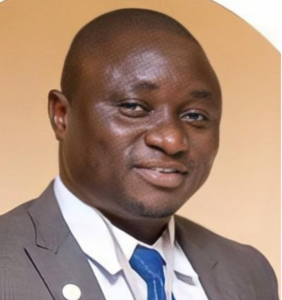Overview
The Sunyani West Municipal is one of the twelve Districts of the Bono Region of the Republic of Ghana. It was established in November 2007 through LI 1881, 2007, and inaugurated on 29th February 2008. Odumase is the administrative capital.
landsize
It lies between latitude 7o 19 ́N and 7o 35 ́N and longitudes 2o 08 ́ W and 2o 31 ́ W. It shares boundaries with Wenchi Municipality to the North East, Tain District to the North, Berekum and Dormaa East to the West, Sunyani Municipal to the South East and to the Eastern borders of the Municipal are Tano North and Offinso North District. In terms of land size, Sunyani West Municipal has total land mass of about 1,658.7 square kilometers.
geographic characteristics
The topography can be described generally as undulating. The area lies within heights ranging from 700 feet (213.36 meters) along River Bisi basin to 1100 feet (335.28 meters) above sea level. The drainage is best described as dendrite with several streams and rivers being seasonal ones. The River Tano provides the most reliable source of water for both domestic and agricultural uses in the lean season.
climate
The climatic zone of the Municipal falls within the Wet Semi-Equatorial region and therefore has two rainy seasons in a year. The abundance of rainfall offers the district a comparative advantage in agricultural production and forestry. Sunyani West Municipal has its major vegetation types as grassland, broken forest and forest reserves, mostly moist-semi deciduous forest.
vegetation and Resources
A considerable land area is made of rock formations believed to be rich in mineral deposits. Generally, soils in the district fall into the ochrosols groups therefore support the cultivation of cocoyam, maize, cassava, cocoa, plantain and yam. There is also widespread production of legumes, rice and vegetables in areas rich in alluvial soil. Also, there is an extensive clay deposit that can be extracted for various purposes such as production of bricks, tiles and other ceramics. There are prospects of Gold and other minerals around Chiraa.
community challenges
The major environmental problems confronting the Municipality are erosion and deforestation. Bushfires pose a threat to more than half of the district’s agricultural land and care needs to be taken to protect farmlands and forest reserves and loss of valuable timber species through these fires. The forest is fast depleting due to the indiscriminate felling of trees for lumber and charcoal. Sheet and gully erosions are common on farmlands, roads and residential areas.
Notable settlements with pronounced erosions include Chiraa, Odumase, Adantia, Bofourkrom and Fiapre.
roads
Apart from Sunyani – Berekum first Class Road, that links the administrative capital to major towns, like Fiapre and Nsoatre; most towns are linked by second Class and third Class (Feeder) roads. The larger terrains are linked by tracts and paths.
population
The growth of the Municipal population has been steady. Apart from the natural growth rate, we can also attribute the migration of settler farmers into the Municipal as a contributing factor to the current population of the Municipal. The current Municipal population is estimated at 147,366, with the population dynamics being 36,547, 5,894, 5,894 and 17,683 for WIFA, expected deliveries, children 12-23 months and children 23-59 months respectively.
The main occupation is farming; however, trading has gained momentum in recent times. There are quite a number of public and civil servants employed in various institutions. There are also myriads of adolescents, young men and women without employment.
ethnicity
The predominant ethnic group is the Bono with a cross mixture of other Akan tribes, Northerners, Ewes, Gas and smaller ethnic groups. The municipality is predominantly Christians. There are also Moslems and traditional worshipers with calculated number of people who do not belong to any religion.
healthcare
The Municipal Health Directorate is one of the decentralized departments within the Municipality. It`s responsible for the health administration and co-ordination of activities of all health providers in the Municipal. The Municipality has three (3) Hospitals: Kwatire Government Hospital, Chiraa Government Hospital, Crosscare Hospital (Private), One (1) polyclinic, three (3) Health Centers, 37 Functional CHPS, two (2) CHAG facilities, four (4) private clinics and three (3) Maternity homes.



